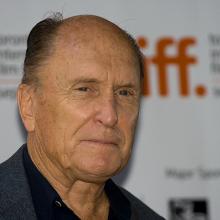U.S. Navy
President Trump, long-chided for failing to address a surge in hate crimes, began his first address to Congress by invoking Black History Month, and condemning recent threats against Jewish institutions and the shooting of Indian men in Kansas City.
The U.S. Navy will no longer allow Bibles and other religious materials in the guest rooms of Navy lodges, a decision that has infuriated some conservative groups, which recently learned about the new policy.
The Navy’s decision came after the Freedom From Religion Foundation sent a letter questioning the constitutionality of religious literature in the Navy lodges’ 3,000 guest rooms.
The June 19 directive from the Navy Exchange Service Command, which runs the Navy’s 39 guest lodges in the U.S. and abroad, allows religious materials to be made available to guests. But it forbids religious items to be placed in guest rooms, aligning the command, known as NEXCOM, with U.S. Navy policy, said NEXCOM spokeswoman Kathleen Martin.
On Tuesday the American Family Association made the directive the subject of its latest “action alert,” asking members to call Navy officials to reverse the decision. The Chaplains Alliance for Religious Liberty has called on the Navy to do the same.
But supporters of the Navy directive, said it rights a constitutional wrong, in that the Establishment Clause does not allow the U.S. government to promote or favor any particular religion.
In early April, the U.S. Navy unveiled its Mach 7 Magnetic Mangler, “a railgun straight out of Star Trek that can take out targets at 100 miles with a projectile flying at nearly 7,000 feet per second.” So far, the U.S. military has spent $240 million developing the railgun over a period of 10 years. CBS News reports that the railgun won’t go to sea until 2016, but one article, published in The Gazette, suggests that the U.S. military may have decided to show off the Magnetic Mangler in order to send a message to the Russian government.
In advance of the University of Wisconsin's recent “Resources for Peace” conference, a professor friend asked participants to consider whether the increasing competition for depleted global resources, for goods to meet essential human needs, would tend inevitably to make people less humane. She was thinking particularly about what she termed “the shrinking humanism” seen in dystopian novels and films that portray cruelty and violence among people who fear for their survival.

Robert Duvall at the Toronto Film Festival, 2009. Photo by Josh Jensen via Wylio http://www.wylio.com/credits/Flickr/3920752942
Many cinephiles have a short list of virtuoso actors who are so graceful and true we'd watch them read a phone book. For me, the list includes Jeff Bridges, Helen Mirren, Diane Keaton, John Mahoney, Christopher Plummer and that great icon of American cinema, Oscar-winner Robert Duvall.
So when a publicist for Seven Days in Utopia contacted me recently about the Christian-themed film and asked whether I'd like to interview Duvall, I jumped at the chance. A loudhailer of a film, long on message and cliché but woefully short on subtlety or artistry (save for Duvall's charmingly folksy performance), Seven Days in Utopia — set in rural Texas, it's an exploration of redemption and golf — is not a flick I'm going to be urging you to run out and see or rent, unless you, like me, would watch Duvall read the proverbial White Pages.
In the film, which opened in theaters last fall and was released on DVD at the end of last year, Duval plays Johnny Crawford, a golf-pro-cum-cowboy who helps a young pro golfer, Luke Chisolm (Lucas Black), reclaim his game and his faith. Duvall's Johnny is like Yoda with a five iron and hearkens back to many of the archetypal characters the Oscar-winner (who turned 81 years old last week) has played throughout his storied career.
Duvall, who began his career on the New York stage in the early 1960s (as a struggling young actor at The Neighborhood Playhouse School of the Theatre, he roomed with fellow students Dustin Hoffman and Gene Hackman), has appeared in some of the most spiritually eloquent films of our time, often playing the role of ersatz sage and spiritual counselor. He is a workingman's working actor with about 150 performances in film and television productions under his belt buckle since his premiere in an episode of the Armstrong Circle Theater television series in 1959.
From "Boo Radley" in 1962's To Kill a Mockingbird and "Tom Hagen" in The Godfather (parts 1 and 2) or "Lieutenant Kilgore" in Apocalypse Now and "Bull Meechum" in The Great Santini, to "Mac Sledge" in Tender Mercies (for which he won the best actor Academy Award) and "Gus McCrae" in Lonesome Dove or "Wayne Cramer" in Crazy Heart and "Felix Bush" in Get Low, Duvall has created indelible characters who are authentic, honest and transcendent.


